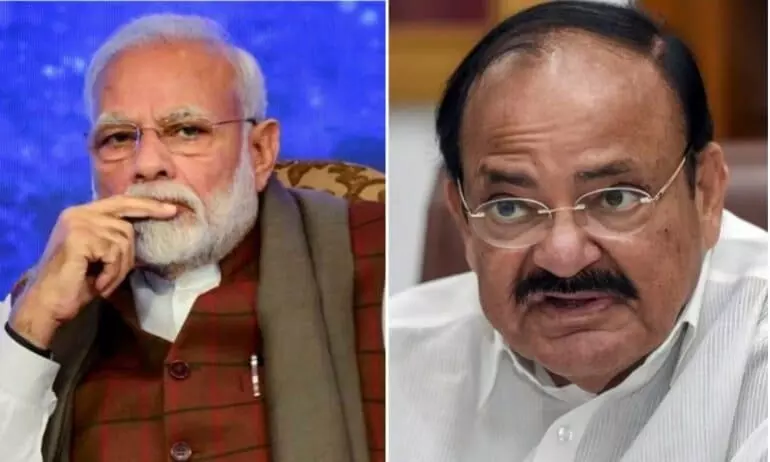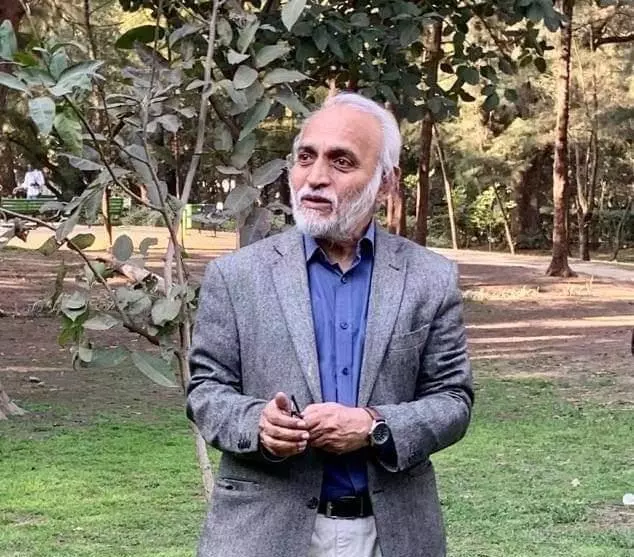Why Venkaiah Naidu lost out in the Modi matrix
Vice President M Venkaiah Naidu’s term ends August 10, and it will mark the end of a successful political innings in national politics.

Vice President M Venkaiah Naidu's term ends August `10, and it will mark the end of a successful political innings in national politics. It is true that both Mr Naidu and many politics-watchers would think that it is ending a little too soon, and that there is lot of politics left in Mr Naidu. There is the view that his political career was cut short by the Bhartiya Janata Party (BJP) by making him the vice president, and there is speculation that even Mr Naidu was not happy with the development. It was expected that he would be either made a president following in the footsteps of Sarvepalli Radhakrishnan and Varahagiri Venkata Giri, or at the least would get a second term as vice president. He might have left politics behind when he became the Vice President, but politics haunted him even after that.
But Naidu's career graph within the BJP is an impressive one. After holding the office of the president of the state unit of Andhra Pradesh, he became the national secretary of the BJP and looked after Himachal Pradesh. And he also became the member of Rajya Sabha, and he served two terms and became vice president during the third term. Earlier, he was a member of the Andhra Pradesh Legislative Assembly between 1978 and 1985, and he even served as leader of BJP's legislative party in the assembly. And in the party, he served in the youth wing both at the state and national levels, and then as national secretary and president of the party.
It might seem a regular career graph and there is nothing extraordinary about it. But he is among the few leaders from Andhra Pradesh, who overcame the Vindhya hurdle, and found a place at the national level usually dominated by the Hindi heartland folk. Of course, the BJP was quite conscious of the fact that it was a Hindi heartland party and tried to accommodate people from other regions to break the identity of being a regional party of north India. BJP aspired to be a pan-Indian party, and it made room for people from outside the Hindi belt.
It is to the credit of L.K.Advani that he had groomed leaders from the second rung, who included Pramod Mahajan, Naidu, Sushma Swaraj, Arun Jaitley and Narendra Modi. Among them, Naidu has worked at different levels of the BJP, both at the state and national levels. Sushma Swaraj was a late entrant though she was a legislator and a minister in Haryana immediately after the Emergency in 1977. and Jaitley did not grow within the party organisation like because of his legal career. Modi was inducted into the BJP from the RSS in the mid-1980s, and did not have experience of a legislator at the state and central levels. Naidu stands out as a seasoned organisational man as well as a parliamentarian. He knew his Rajya Sabha Rule Book quite well, and he used it well both as a member and as chairman of the Upper House.
It is not necessary to ask whether something went wrong with Naidu's political career, and why did it have to end with a constitutional post which has no political significance. Mr Modi's domination of the BJP has doomed the existence of many other senior leaders in the party, including that of Naidu. But instead of being marginalised, he was rewarded with an important constitutional office. As there is no room for dissent and rival groups inside BJP as there was in the time of Atal Bihari Vajpayee and Advani -there was the Advani group and the Vajpayee group, and even at the individual level, there was clash between Vajpayee's principal secretary Brajesh Mishra and Jaswant Singh, and between Pramod Mahajan and Arun Shourie. In the Modi era, there is only the reign of Modi and his Man Friday, Union Home Minister Amit Shah. So, it became difficult for partymen like Naidu, Rajnath Singh and Nitin Gadkari to exist. Naidu was provided a dignified exit from the party compared to others.
What surprises many observers is that Naidu accepted the Modi leadership wholeheartedly whatever his reservations might have been before Modi became prime minister, and he was quite vocal about it. But it has not helped because Modi wants to show that his political decisions are not influenced by the friendship factor, and that he is looking to play a larger game of making the BJP a merit-based inclusive party where people from the socially marginalised sections will be rewarded with ceremonial constitutional posts. Modi is however very clear that he would not want any leaders who can run shoulders with him in the party. On both counts, Naidu was on slippery ground. He was an experienced party man and he was not from the marginalised sections of society.



